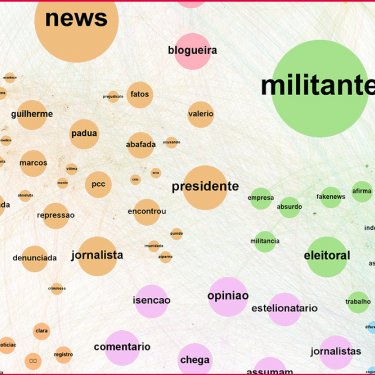RSF will analyse online attacks against media during Brazilian election campaign

Reporters Without Borders (RSF) has embarked on an unprecedented project whereby it will monitor and analyse online attacks, threats and violence against the media throughout Brazil’s election campaign.
“Systematic monitoring and in-depth analysis of online attacks against the media are essential in order to better understand the digital arena’s role in shaping violence against journalists in Brazil, and to consider more effective solutions to combat this phenomenon,” said Emmanuel Colombié, the director of RSF’s Latin America bureau.
The campaign to elect a new president, members of both houses of the national congress, governors and members of the legislative assemblies in Brazil’s states was officially launched on 16 August and will end with their election for the next four years on 2 October or, if a second round is needed, on 30 October.
With support from the Canada Fund for Local Initiatives (CFLI), RSF’s Latin America bureau will monitor, analyse and denounce online attacks against journalists during the campaign in partnership with the Laboratory for Image and Cyberculture Studies (LABIC), a leading research centre specialising in social media analysis and digital trends that is attached to the Federal State University of Espirito Santo.
More than 100 Twitter and Facebook accounts of journalists, public authorities and election candidates, at both federal and local level, will be scrutinised daily from 16 August to 16 November. The most widely used offensive and derogatory hashtags, expressions and insults on social media will also be closely examined.
The results of this work will be compiled and published regularly on the RSF website. A detailed report analysing the main trends and attacks observed during the project will be published after the elections. The project’s goal is to better understand the origin, structuring and dissemination of these online attacks, to denounce the main culprits, and to find effective and lasting solutions to combat this phenomenon.
In recent years – especially since Jair Bolsonaro’s election as president in late 2018 – online attacks against journalists have grown in frequency and intensity in Brazil, encouraging censorship and self-censorship.
In 2021, RSF published the findings of a survey of the behaviour of users of Twitter, the platform used for most of the attacks on the media and journalists in Brazil. It showed that Bolsonaro supporters were the main authors of these attacks and that their main targets were media outlets critical of the government, and women journalists.
